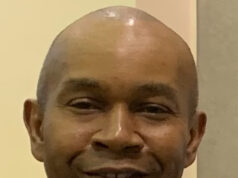Losing a loved one is one of life’s most painful experiences. The pain is greater when it happens unexpectedly due to someone else’s negligence. In such tragic circumstances, seeking justice and compensation becomes essential for the surviving family members. This is where it becomes crucial to hire a wrongful death attorney.
According to a comprehensive study by the Centers for Disease Control and Prevention, unintentional injuries rank as a leading cause of death in the United States. This statistic underscores the prevalence of accidents that can result in wrongful death claims, highlighting the need for legal recourse and accountability.
Wrongful Death Claim Overview
A wrongful death claim arises when a person dies due to the negligence, recklessness, or intentional actions of another party, leading to legal recourse sought by the surviving family members. These claims encompass a range of accidents, with each type of accident presenting its own unique set of circumstances and factors contributing to the tragic outcome. Wrongful death claims aim to hold responsible parties accountable for their actions or lack thereof, seeking justice and compensation for the losses endured by the surviving family members.
Types of Accidents Leading to Wrongful Death Claims
Car Accidents
Car accidents stand as one of the foremost causes of wrongful death claims across the nation. Factors such as reckless driving, distracted driving, speeding, and driving under the influence of alcohol or drugs contribute significantly to fatal car accidents. Victims of these tragic incidents may include not only drivers but also passengers, pedestrians, or cyclists who find themselves in harm’s way.
Medical Malpractice
Within the realm of healthcare, medical malpractice represents a distressing reality that leads to wrongful deaths. Instances of negligence during surgical procedures, misdiagnosis, medication errors, and the failure to adequately monitor patients can all culminate in fatal outcomes. These errors not only shatter the lives of the victims but also leave families grappling with profound grief and the aftermath of preventable tragedies.
Workplace Accidents
The workplace, particularly in industries such as construction, manufacturing, and transportation, can be rife with hazards that result in fatal accidents. Factors such as the absence of proper safety protocols, inadequate training, defective equipment, and negligence on the part of employers all contribute to the occurrence of such tragic incidents. Each fatality represents not only a loss to the affected families but also a stark reminder of the imperative for employers to prioritize employee safety above all else.
Product Liability
Defective products pose significant risks to consumers, with some cases resulting in fatal consequences. Manufacturers, distributors, and sellers may all be held accountable for wrongful deaths caused by defective products, including but not limited to faulty machinery, contaminated food or drugs, and defective vehicles. These instances underscore the importance of stringent product safety standards and accountability throughout the supply chain.
Premises Liability
Property owners bear a responsibility to maintain safe premises for visitors and guests, yet lapses in this duty can lead to fatal accidents. Incidents such as slips and falls, electrocutions, drownings, and structural collapses resulting from negligence or inadequate maintenance fall under premises liability. Each of these tragic occurrences underscores the necessity for property owners to prioritize safety measures to prevent avoidable harm.

Proving Wrongful Death
To establish a wrongful death claim, certain elements must be proven:
- Duty of Care: The defendant owed a duty of care to the deceased, meaning they had a legal obligation to act reasonably and prevent harm.
- Breach of Duty: The defendant breached this duty through negligence, recklessness, or intentional misconduct.
- Causation: The defendant’s actions or failure to act directly caused the death of the victim.
- Damages: The surviving family members suffered measurable damages as a result of the death, such as loss of financial support, emotional trauma, and funeral expenses.
By Chris Bates











